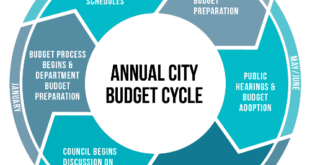By Jim Stasiowski
As I sit here writing this, I wonder what other people are doing, on Thanksgiving Eve.
You … you noticed, didn’t you? That time element at the end is ambiguous.
 What does it mean? And is that comma necessary?
What does it mean? And is that comma necessary?
Depends.
Am I “writing this … on Thanksgiving Eve”? Or am I wondering “what people will do on Thanksgiving Eve”?
Ah, Thanksgiving, that most American of holidays (if we ignore the 4th of July, Presidents Day, Martin Luther King Day, Veterans Day, Memorial Day, Labor Day, Columbus Day, VE Day, VJ Day and my birthday) also is the topic of Today’s Stretched Metaphor: the sentence as Thanksgiving Day dinner.
When we put words together in what we call a sentence – subject, verb, object, et al. – we are arranging the dinner seating arrangement of the large family. Subject and verb (mom and dad) are side-by-side, but what about the others?
Well, if we just kind of mash them all together (like the potatoes), yeah, that’ll work, but it also may place Uncle Mort right next to Aunt Millie, and the two of them haven’t spoken since the 1954 World Series.
So we’re more careful than that. The best move is to place Uncle Mort next to your nephew’s cute blond girlfriend (Morty loves to flirt, and the frightened, overwhelmed girlfriend is nice to everyone), and Aunt Millie next to cousin Rick, who can listen endlessly to anyone, provided he can reach the wine bottle.
Sentences should not be mere collections of words that pass along information; they should be painstakingly composed so as to be both clear and thought-provoking.
Here’s one I saw recently: “The students were in Paris to study art when the terrorists attacked.”
Almost certainly, readers will know what that sentence means. But just as my lead sentence has that pesky comma, the “students were …” sentence has a flaw of placement.
“… (T)o study art when the terrorists attacked” can be interpreted to mean that the students timed their art-study trip to coincide with the terrorists’ attacks. Of course, every reader with any logical awareness will dismiss that possibility as folly and grasp the sentence’s intended meaning.
But why should we accept a flawed sentence when simply moving one element – “Um, excuse me, Uncle Mort, would you mind changing places?” – solves the problem and makes us look at least competent?
“When the terrorists attacked, the students were in Paris to study art.”
The guideline: A time element (“When the terrorists attacked …”) almost always modifies a verb. By placing a verb, “to study,” between “were” and “When the terrorists attacked,” we remove the intended direct connection between the time element and “were.”
When the time element is placed sloppily, we writers show we’re not really paying attention. Whenever possible, place the time element directly before or after the verb or subject-verb combination.
Here’s another Mort-Millie faux pas: “He is accused of beating two playmates up.”
Again, the meaning is clear. No reader is going to think that “He” so pummeled the playmates that they went “up,” as in ascended into mid-air.
But “beat up,” like “hold on,” is a combination known as a verb (“beat”) and its tail (“up.”)
Whenever possible, we unite verb and tail, so “… of beating up two playmates” is preferable.
Here’s a Mort-Millie that has become epidemic: separating an antecedent and its pronoun. A simple example: “The City Council passed the law in Detroit that eliminates stop-and-frisk by police.”
The pronoun “that” takes the antecedent “law,” but a careless reader could read: “… Detroit that eliminates … .”
o, no harm, no foul there; again, readers understand. But why not merely rearrange: “The Detroit City Council passed the law that eliminates …”?
But the misplacement gets a lot worse when several words intervene, as in: “Malone’s foundation donated money to the beleaguered museum that allowed the doors to stay open when the payroll cash ran out.”
See the ambiguity? Was it the “money … that allowed the doors to stay open,” or the “… museum that allowed the doors to stay open”? Considering how the sentence ended, it seems the former was intended, but the placement of “that” in front of “museum” creates an ambiguity.
Better: “… foundation donated money that allowed the beleaguered museum’s doors to stay open … .”
There is always a way to rearrange a sentence’s elements.
So let’s do that with this column’s opening sentence: As I sit here writing this on Thanksgiving eve, I wonder what other people are doing. It’s slightly clearer, which is a worthwhile goal.
THE FINAL WORD: If I told you the past tense of “pay” was “payed,” you’d assume I had abandoned all principles of literacy. Not so fast. Yes, “They paid their rent on time” still is correct, but when we’re writing about gradually letting out rope or cable, we would write, “They carefully payed out the rescue line.”
Jim Stasiowski, a managing editor at the Rapid City Journal, welcomes your questions or comments. Call him at (605) 716-0981 or write to 1122 City Springs Road, Apt. 205, Rapid City, S.D., 57702.
 Nevada Press Association The best in Nevada journalism since 1924
Nevada Press Association The best in Nevada journalism since 1924



